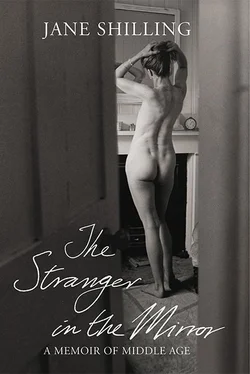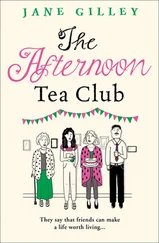In my mid-forties, having rejected my GP’s offer of temporary sterilisation by implant, I began to take the low-dose Pill – at which the flow of blood that had marked each month with infallible regularity for so many years suddenly became erratic: first dilatory, then too frequent.
I stopped taking the Pill, but the cycle remained erratic. I wondered if I might be pregnant. The prospect was bizarre. I thought of the terrible, inconsolable crying; the long night watches; the unwieldy impedimenta of infancy that shoulders its way into every vacant space – the pushchair looming in the hallway, waiting to catch your ankles like a troll under a bridge; the nursery cot with its prison bars and packets of nappies stacked around it like straw bales in a barn, the trash of gaudy toys, each with its call sign of squeak, plink, tinkle or maddening snatch of electronic ditty.
I thought of the fact that we live in a house with four cramped rooms, only two of which are bedrooms and as I did so I had a flash, lurid as a photographed murder scene, of the inexorable way a baby would take over every inch of that small space.
I thought about telling my son, who had lived his whole life in the full beam of my undivided attention, that he would now have to share it with a baby brother or sister. I thought about the shit-smeared psychodrama of potty training, about the remorseless egotism of small children, the exquisite tedium of their conversation, like the shrill, repetitive calls of tropical birds, and of myself sixteen years hence, still thrashing in the snare of GCSE coursework while my contemporaries who had slipped the leash of parenthood sped away from me, into the airy freedom of the rest of their lives.
I thought of having to summon the energy to start again from the beginning, just as I’d begun to luxuriate a little in the thought that it was almost over. I thought of what it would be like to raise another child, still on my own, but sixteen years older than I was the last time. And I hoped with a thrill of longing like falling in love that I might be pregnant.
Perhaps I dared hope because I knew it was quite safe; there would be no pram in the hall because it wasn’t pregnancy that had staunched my flow of blood, but the last of the long line of dream babies that had passed at the rate of one a month for hundreds of months, but now was dwindling; the tail end of the column of phantom children that used to extend over the far horizon now visible; one or two last stragglers vanishing from sight and then no more.
And as I had when I was a girl waiting to become a woman, I lost the complacency with which I had grown accustomed to inhabit my body and became once again watchful and uncertain, began looking out for signs that I’d passed the frontier from one state to another.
As a teenager I could feel myself living in my body as though it were a garment that didn’t quite fit; as though I’d dressed up for a game in one of my mother’s outfits and was now trapped where everyone could see me, wearing a dress that was too big for me, too grown-up, whose womanly cut of bust darts and hip yoke hung mockingly ample on my bony, curveless frame. In my bedroom I examined the imperceptible swelling of my breast buds; the few pale hairs growing at fork and armpits, and wondered how long I must wait in this unformed, fledgling state, too big for the nest, too small to fly, and in everyone’s way as a consequence.
Now the feeling of suffocation came again: as familiar as though it hadn’t been absent for thirty years, this uneasy sensation of waiting for a change to take place that will leave you vulnerable and exposed, but about which you know nothing – not when it will come, nor how – other than that its coming is inexorable. Perhaps it is the feeling a snake has when it is about to cast its skin.
When the blood ceased to appear I felt strange: stopped-up, dry and hollow, like an unwatered plant. I looked at the packets of tampons in the bathroom cupboard, for light to medium flow, and thought, well I won’t be needing you any more, for I am a woman whose flow has dried up. I didn’t care for the sound of the phase. It reminded me of Judith Starkadder in Cold Comfort Farm , announcing darkly that she was a Used Gourd. Once again, I felt I was inhabiting a body that wasn’t mine.
Still, I thought, in time no doubt I’d get used to this peculiar stopped-up feeling and after a while it would become a part of my normality, in the same way that gross myopia struck me as an affront when my sight first began to fail around the age of nine; but I’d since forgotten what it might be like to open my eyes on waking and see anything other than a formless astigmatic blur. If that was it, I couldn’t really see what all the fuss was about the menopause.
In fact, according to the plethora of menopause handbooks, the end of bleeding was only the beginning. Indeed, it was generally agreed to be altogether the best bit of the menopause – the tidying-up of the ‘mess’ and ‘nuisance’ of the menses acting as a sort of consolation prize for all the other inconveniences. I felt, sulkily, that I’d always rather liked the lunar ebb and flow of femaleness, relished the Dame aux camélias drama of blood and grand emotion for a week in every month. I thought life seemed a bit dull and shapeless without it.
If the narratives of middle age in modern fiction are somewhat thin and apologetic, there is rich compensation to be found in the handbooks of menopause, which tackle their subject with a certain grim relish for the indignities their readers are about to experience. They tend to have pink on the cover and titles in which mild facetiousness competes for the upper hand with a certain euphemistic optimism: A Change for the Better; Is It Me, Or Is It Hot In Here?; The Woman’s Guide to Second Adulthood , and so on.
Manuals tackling other problematic aspects of female life – pregnancy, say; the raising of toddlers or teenagers; losing weight; finding and keeping a lover; decorating a house; deciding what to wear – do not, on the whole, begin with a litany of reassurance about how what you’re about to experience won’t be anything like as terrible as you think it might be. But this is a common feature of guides to coping with middle age and the menopause.
Dr Hilary Jones, the GP, newspaper columnist, telly doctor and ice dancing star, concludes the introduction to his A Change for the Better (‘How to survive – and thrive – during the menopause’) thus:
In this new millennium the menopause need no longer be regarded by women as a time they most come to dread. It need no longer be associated as it once was with negative attitudes, intractable physical symptoms and mind-altering psychological turmoil.
Nor should it any longer be the subject of such widespread but misguided medical mythology. HRT does not make you gain weight. You do not suddenly cease to be sexually attractive or responsive, you do not become socially redundant in the eyes of your family and society as a whole, and it is not the final chapter in a woman’s intellectual life by any means. Far from it.
Rather in the way that it didn’t occur to me, while pregnant, that I might suffer from pre-eclampsia, placenta praevia, breech presentation, toxoplasmosis or an incompetent cervix and, by shunning handbooks, antenatal classes or any other source of anecdotal information on my condition, failed to apprehend the frightful dangers to which by a single careless act I might expose my unborn child, striding my way through a pregnancy in which my contact with unpasteurised cheese, germ-laden cats and the stress of extreme unhappiness was equalled only by my excellent physical health and preternaturally low blood pressure, it hadn’t struck me that the end of my fertility might be attended by any of the hobgoblins of which Dr Hilary was kindly urging me not to be frightened.
Читать дальше












